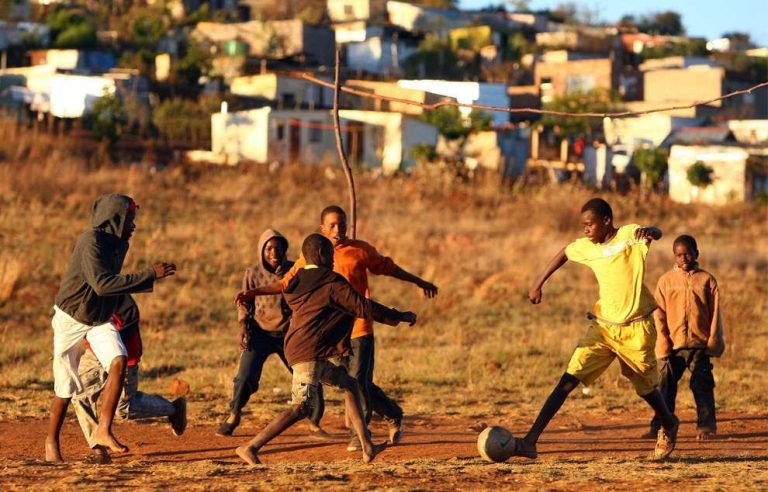Home » Football Africa: Transforming Lives Through the Beautiful Game

Transforming Lives: Football’s Role in Ending Poverty in Africa
Football is a global sport that has captured billions of hearts and minds across the globe. However, the real intrinsic value beyond all the entertainment in football is its power for social transformation and as a way out of poverty for many people in Africa. For many, it offers an escape from poverty and a chance to achieve dreams that seem out of reach.
Inspiring Journeys of African Football Stars
Alex Song, from the Streets of Yaoundé to Global Stardom
Alex Song was born in the poor streets of Yaoundé, Cameroon; football became an inspiration in his life full of adversity. But through determination, he made his way to international stardom and a successful career with no boots and no proper playing ground. His journey stands as a testament to the resilience and determination that football instills into its players.
“My journey that began in Yaoundé as a child, playing with no boots, in bare feet, and on hard gravel, gave me the strength and courage to succeed.”
Odion Ighalo: From Ajegunle to Professional Success
Odion Ighalo’s story mirrors Song’s. His childhood was full of poverty and constrained chances. He grew up in Ajegunle, one of the roughest slums in Lagos, Nigeria, where the young Ighalo found solace and an escape through football. This talent and dedication led his way towards professional success and displayed the example of how football can actually transform lives.
“I come from the ghetto, where there was no 24-hours electricity, no good water, bad roads, and the neighbourhood is tough. We used to kick old cans, plastic bottles, sometimes even an orange, around the street in bare feet.”
Sadio Mane: From Sedhiou to Global Football Icon
Sadio Mane grew up in the remote village of Sedhiou, Senegal, and was poor, with a lack of proper schooling and educational opportunities. But, football was his first love, for it was on the pitch he found a way to demonstrate his talent and actualize his ambition. His journey and subsequent life as one of the greatest African footballers is evidence of how football finds a way of breaking down barriers and creating opportunities for those who might not have had such privileges afforded to them.
Football’s Economic and Social Impact in Africa
Beyond individual success stories, football contributes significantly to Africa’s economic and social development. The sport brings a lot of income and employment to the footballers, coaches, and related businesses by creating jobs for these individuals. Additionally, the sport also enhances cohesion among people and is a driver of good values since people come together irrespective of their backgrounds or social classes.
Challenges and Future Directions
Despite its transformative potential, challenges remain in making football a truly equitable pathway out of poverty. For most of these children, therefore, quality coaching, financial resources, and educational opportunities are few. More work should be put into getting rid of these problems in the future so that football can continue to improve lives in Africa.
Conclusion
Football in Africa is more than just a sport; it’s a catalyst for change. By providing opportunities, inspiring hope, and driving economic growth, football is playing a vital role in transforming lives and communities. As the world continues to be captivated by the beautiful game, let us recognize its power to create a brighter future for millions of Africans.



